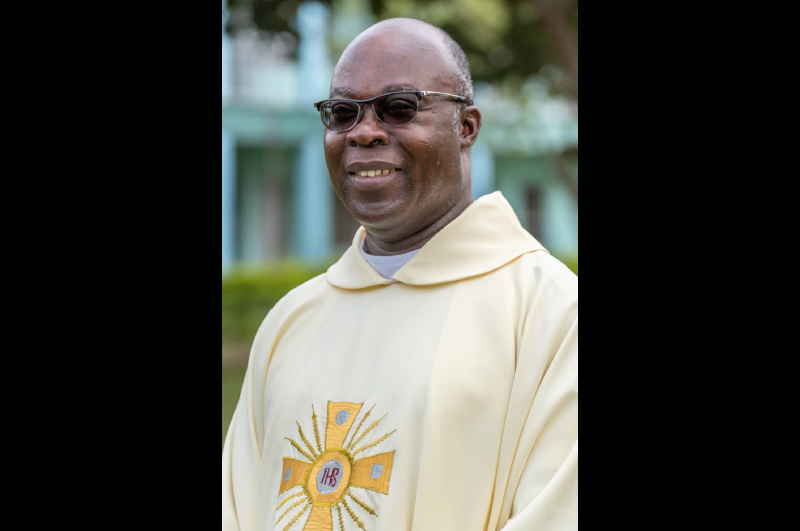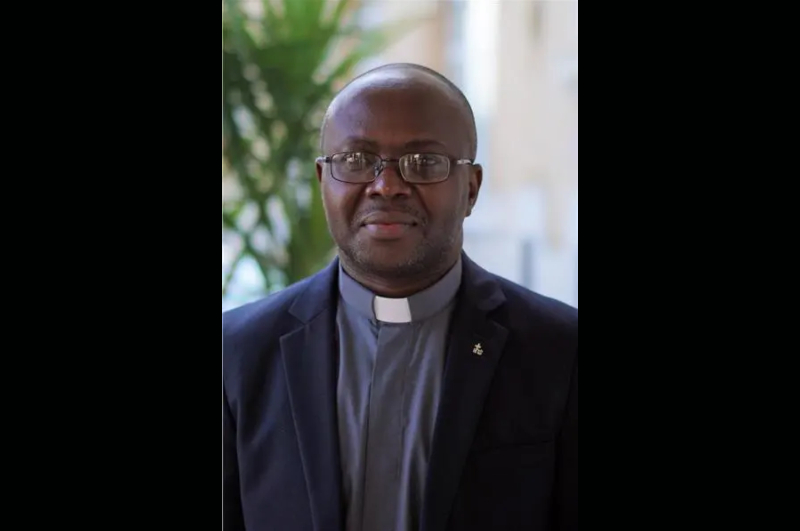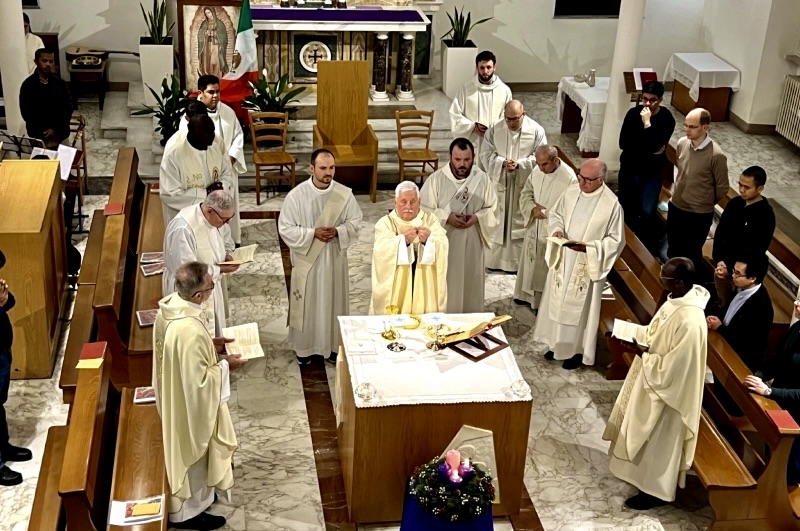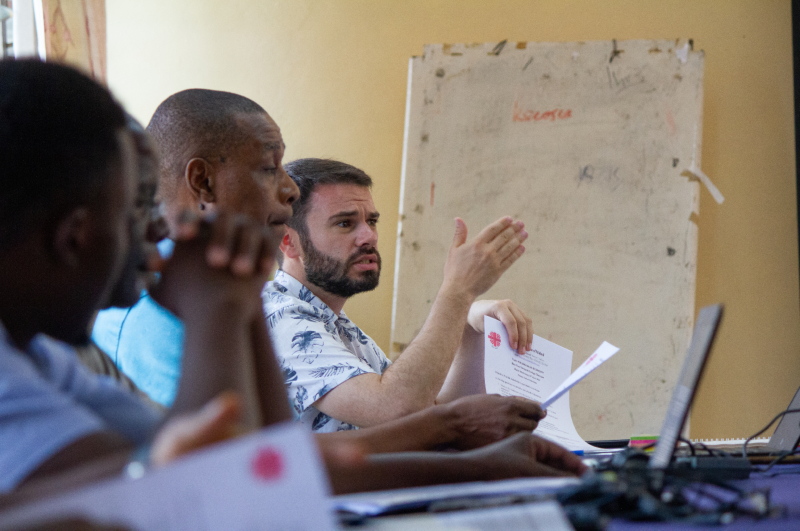

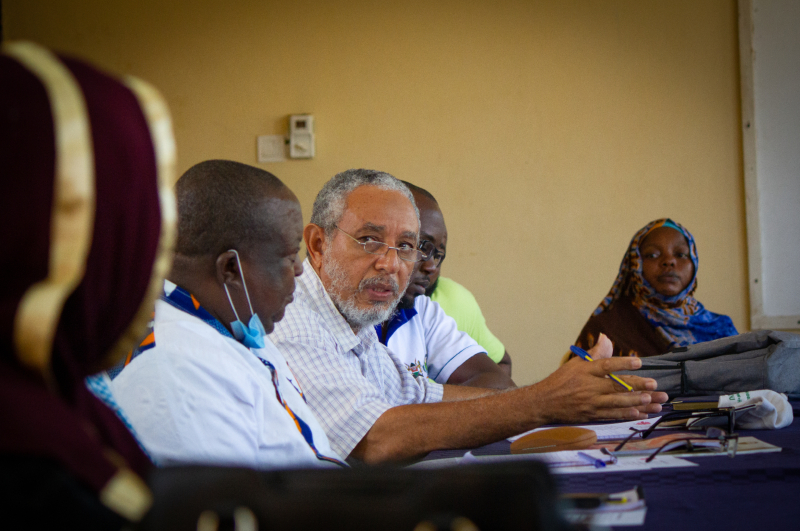

The office of the Jesuit Justice and Ecology Network Africa (JENA has been busy, and for good reason.
As JENA continues to challenge unjust policies and practices to promote social justice - advocacy has been at the center of this effort emerging from both new and existing collaborations with various stakeholders within the Church and outside of it.
In 2023, JENA engaged with various stakeholders in high-level meetings and events locally and internationally adding a Catholic voice to areas around governance, development, global finance, and among other prevailing social issues like debt and climate change.
Catholic Efforts for Education and Gender Parity in Africa
Earlier in September 2023, JENAs Bakhita Partnership for Education (BPE) programme in partnership with Conrad N. Hilton Foundation and African Union International Centre for Girl and Women Education (AU-CIEFFA) hosted a compelling event on Gender Responsive and Transformative Education in New York, as part of 78th UN SDG Summit.
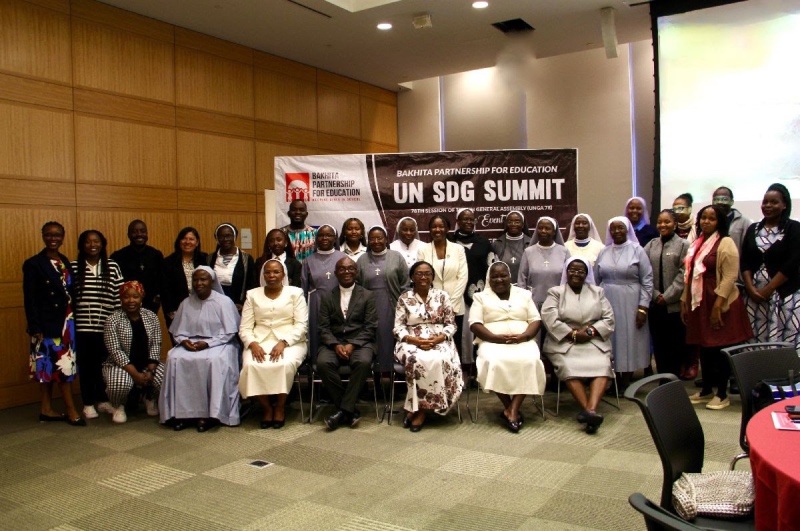 Seated L-R are Sr. Jane Wakahiu, LSOSF, Ph.D., Hilton Foundation Associate Vice President and Head of Catholic Sisters (in white), Fr. Charles Chilufya S.J. - Chairman Bakhita Partnership for Education, Mrs. Simone Yankey – Ag Director AU International Centre for Girls and Women’s Education in Africa (AU CIEFFA), Ms. Victoria Abioseh Egbetayo, Global Partnership for Education, and Sr. Dr. Rosemary Nyirumbe, Ph.D., Director of St. Monica’s Girls’ Tailoring Center, Uganda.
Seated L-R are Sr. Jane Wakahiu, LSOSF, Ph.D., Hilton Foundation Associate Vice President and Head of Catholic Sisters (in white), Fr. Charles Chilufya S.J. - Chairman Bakhita Partnership for Education, Mrs. Simone Yankey – Ag Director AU International Centre for Girls and Women’s Education in Africa (AU CIEFFA), Ms. Victoria Abioseh Egbetayo, Global Partnership for Education, and Sr. Dr. Rosemary Nyirumbe, Ph.D., Director of St. Monica’s Girls’ Tailoring Center, Uganda.
About two hundred globally acclaimed experts in education and various leaders of the Catholic religious sisters and the Jesuit Justice and Ecology Network in Africa (JENA) and beyond attended the event both in person and online. The event was designed to highlight the substantial contribution of Catholic education in expediting the realization of sustainable development goals in Africa, particularly SDG 4 (Quality Education) and SDG 5 (Gender Equality), while elevating the narratives, experiences, and insights of girls from underserved and marginalized communities in Africa. The event also recognized the significant role the Catholic religious sisters have played in education in Africa, particularly in providing access to education for marginalized communities and promoting the empowerment of women.
The Jena assembly
JENA held its fourth Annual Assembly from 2-6 October 2023 in Bujumbura, Burundi. The 5-day meeting brought together the Jesuit Conference of Africa and Madagascar (JCAM) social centres of the 6 provinces and 1 region advocating for the promotion of peace and justice as a concrete, radical but proportionate response to an unjustly suffering world.
Annual Assemblies are held by JENA to enhance networking, collaboration, and discernment in the social ministries of the Jesuit Conference of Africa and Madagascar (JCAM), to come up with concrete suggestions for collaborative actions, connect with the Jesuit networks globally, enhance the voice of Africa on social justice and climate change concerns on the global stage, develop strategies to operationalize ideas, capitalize on experiences and spaces for interconnection, amplify the strength of networking and resource mobilization, strengthen the voice of the afflicted our research and have conversation on how to engage the youth and other marginalized voices.
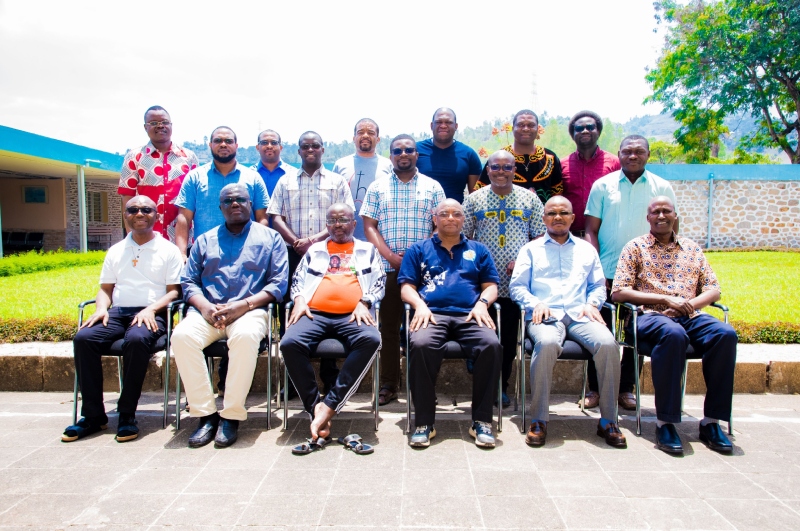 Jesuit Social Apostolate Centers' Directors of works with the JCAM President Fr. José Minaku, SJ (front row, second left).
Jesuit Social Apostolate Centers' Directors of works with the JCAM President Fr. José Minaku, SJ (front row, second left).
In Bujumbura, the delegates were joined by the new JCAM President, Fr. José Minaku, SJ, who during the meeting called on them to continue being missionaries and witnesses of hope.
This call speaks to the commitment made by the Society of Jesus during the 32nd General Congregation (GC) in 1975 which through prayer and deliberation, in the words of the late Rev. Peter-Hans Kolvenbach, SJ, Superior General of the Society of Jesus “slowly realized that the entire Society of Jesus in all its many works was being invited by the Spirit of God to set out on a new direction. The overriding purpose of the Society of Jesus, namely “the service of faith,” must also include “the promotion of justice.” This new direction was not confined to those already working with the poor and marginalized in what was called “the social apostolate.” Rather, this commitment was to be “a concern of our whole life and a dimension of all our apostolic endeavors.” So central to the mission of the entire Society was this union of faith and justice that it was to become the “integrating factor” of all the Society’s works, and in this light “great attention” was to be paid in evaluating every work, including educational institutions”.
World Bank and IMF Annual Meetings - Focus on Africa
Following the Assembly of Social Centres, Fr. Charles Chilufya, SJ, the JENA Director joined African entrepreneurs, and World leaders in Marrakech, Morocco, for the Annual Meeting of the International Monetary Fund (IMF) and World Bank from 9-13 October. A seating that hadn’t been held in the continent of Africa in half a century - the last having been held in 1973 in Nairobi, Kenya in the wake of the Yom Kippur War.
In his presentation, Fr. Chilufya highlighted that the world's focus on Africa is not just essential but timely, he said “As we unite to address the multifaceted challenges of our age, it's vital that Africa's voice is amplified, and its needs addressed holistically." He further said that “the criticisms of these institutions have not gone unheard. Many African officials argue that policies that deny economies access to credit and loans based on the prerequisite of balanced budgets, often corner governments into making untenable decisions. This includes introducing tax reforms or slashing crucial subsidies for essential commodities such as food and energy”.
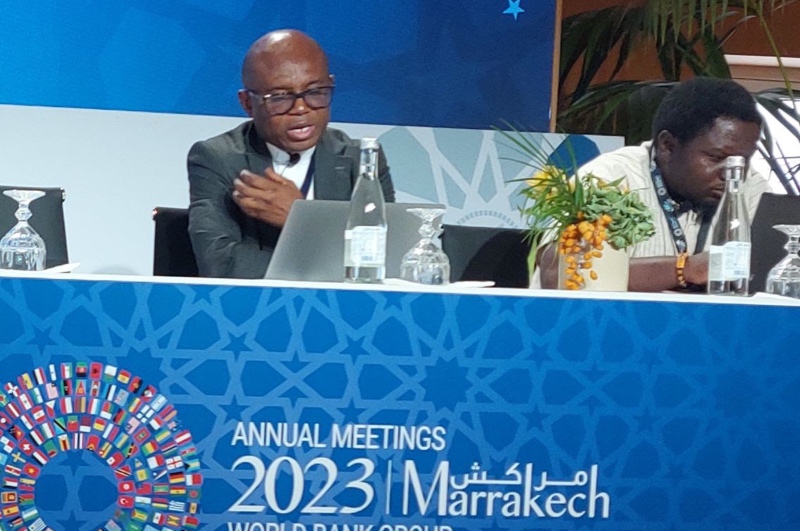 The JENA Director, Fr. Charles Chilufya, SJ, in Marrakech, Morocco. IMF, World Bank meeting.
The JENA Director, Fr. Charles Chilufya, SJ, in Marrakech, Morocco. IMF, World Bank meeting.
At the same time, the Justice, Peace and Development Commission of the Catholic Symposium of Episcopal Conferences of Africa and Madagascar (SECAM) issued a statement addressed to the world leaders attending the annual IMF, G20, and World Bank meetings urging them to promote urgent debt relief, aid, and lending policies to address the interlinked crises African countries face. “To successfully address debt crises, it is crucial to tackle the complexities arising from multiple creditors. This necessitates the coordination of efficient, prompt, and comprehensive policies that encompass both public and private creditors,” the Bishops said.
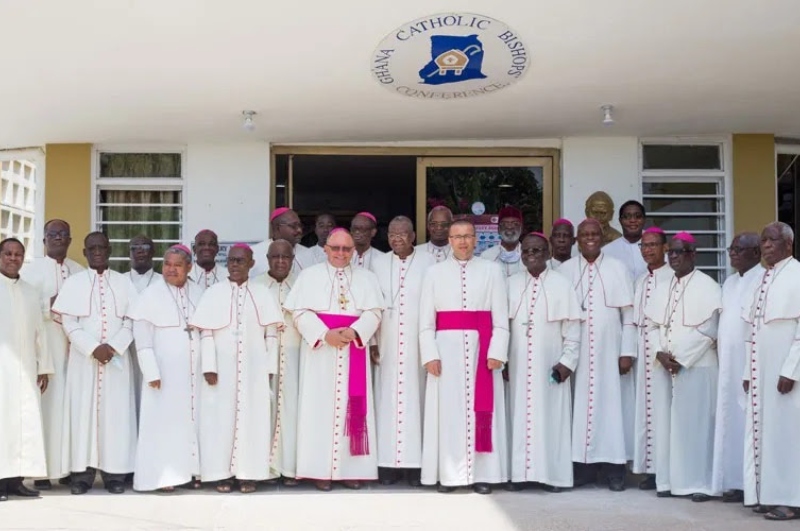 African Catholic Bishops.
African Catholic Bishops.
The statement, “A Call to Leaders Actions for a True Jubilee of Hope in Africa,” follows on Pope Francis’ declaration of year 2025 as a Jubilee year, under the motto “Pilgrims of Hope.”
The faith leaders pointed out that in Africa nearly 600 million people live in poverty and near 280 million are hungry, calling to remove the obstacle of debt that prevents many countries from having the resources to invest in crisis response and protect their most vulnerable. They recalled that in 1999, then Holy Father St. John Paul II linked debt relief to the fight against poverty, stating that the message remains true today.
You can read the full statement {Here}
COP28 (United Nations Climate Change Conference or Conference of the Parties of the UNFCCC)
In Dubai, UAE, the Jesuit Justice and Ecology Network Africa (JENA) in collaboration with the Panafrican Climate Justice Alliance (PACJA) successfully hosted a side event titled "A Just Transition for Africa: Mining for Climate Change Mitigation - Ethical Perspectives" on the 5th of December 2023 during COP28. The event, held under the broader theme of "Just Energy Transition, Industry, and Trade," aimed to foster dialogue at the intersection of faith, ethics, climate change mitigation, and a just transition within the mining sector in Africa.
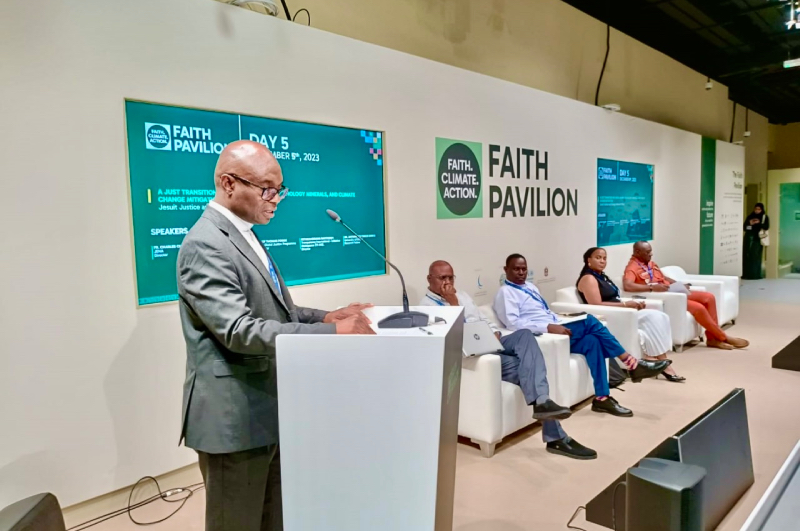 Fr. Charles Chilufya, SJ, during COP28 side event in Dubai, UAE.
Fr. Charles Chilufya, SJ, during COP28 side event in Dubai, UAE.
Speaking at the event, Fr. Charles Chilufya, S.J, Director of JENA said, “At the heart of global climate climate politics lies a deeply human story, one that extends far beyond the realm of carbon emissions and reaches into the essence of what it means to be a global community. The narrative is often dominated by carbon metrics and emission targets. However, beneath the veneer of these discussions lies a stark reality: the developed world's inaction and financial neglect are costing lives in the developing world. This is not merely a game of numbers or economic leverage but a profound humanitarian crisis".
The event brought together prominent voices in the field to discuss and advocate for ethical and sustainable practices within the mining sector in Africa, among them Dr. Antoinette Tsiboe-Darko from the Centre for Social Policy Studies, University of Ghana, who stressed the need for a more ethical and inclusive approach to mining and the enforcement of reclamation and restoration of ecosystems as part of mining contracts African governments issue.
COP28
"A Just Transition for Africa: Mining for Climate Change Mitigation - Ethical Perspectives" Side Event at COP28A Midpoint Examination of COP28:Progress Amidst Persistent Gaps
Spotlight on Africa: COP28, Dubai
Transformative Climate and Health Declaration Unveiled at COP28
AMECEA issues a Press Statement Pre-COP28
Global Food Systems Transformation at the Centre of COP28
Towards COP28: Voices from the Margins-Climate and Justice Advocacy Campaign 2023
Welcoming Change: Africa's Role in Shaping Global Climate Solutions
Ecojesuit towards COP28: Committing to a South-North climate justice advocacy
To read more news on the work of JENA, visit the Jesuits Africa media section {Here} or the JENA website {Here}
Related Articles

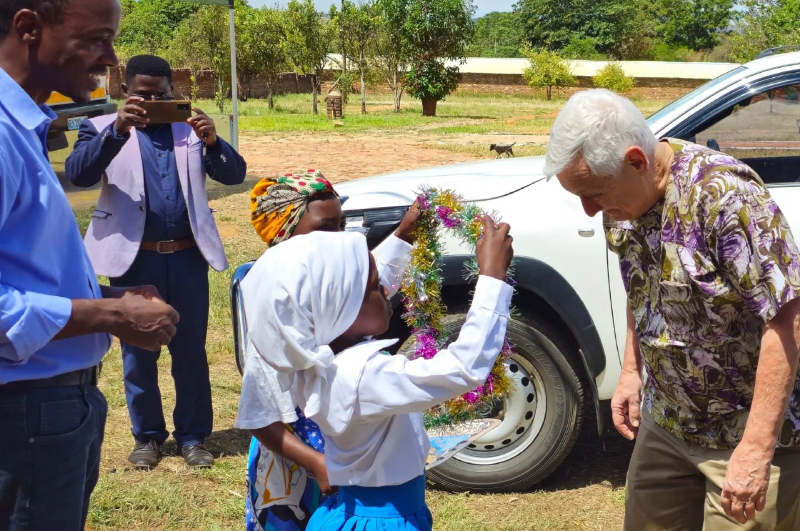

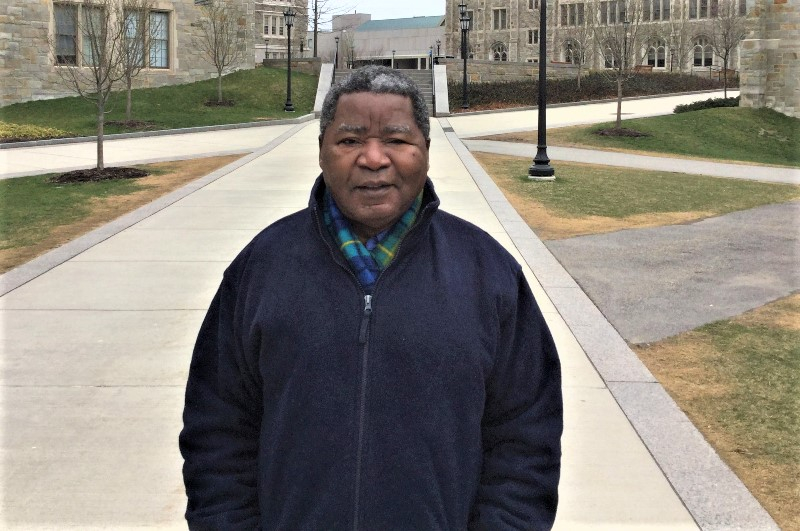

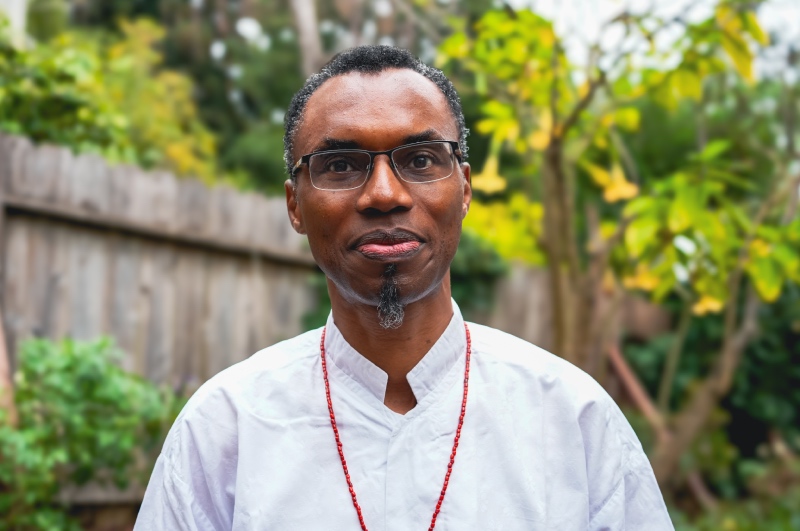
Select Payment Method
Pay by bank transfer
If you wish to make a donation by direct bank transfer please contact Fr Paul Hamill SJ treasurer@jesuits.africa. Fr Paul will get in touch with you about the best method of transfer for you and share account details with you. Donations can be one-off gifts or of any frequency; for example, you might wish to become a regular monthly donor of small amounts; that sort of reliable income can allow for very welcome forward planning in the development of the Society’s works in Africa and Madagascar.
Often it is easier to send a donation to an office within your own country and Fr Paul can advise on how that might be done. In some countries this kind of giving can also be recognised for tax relief and the necessary receipts will be issued.


